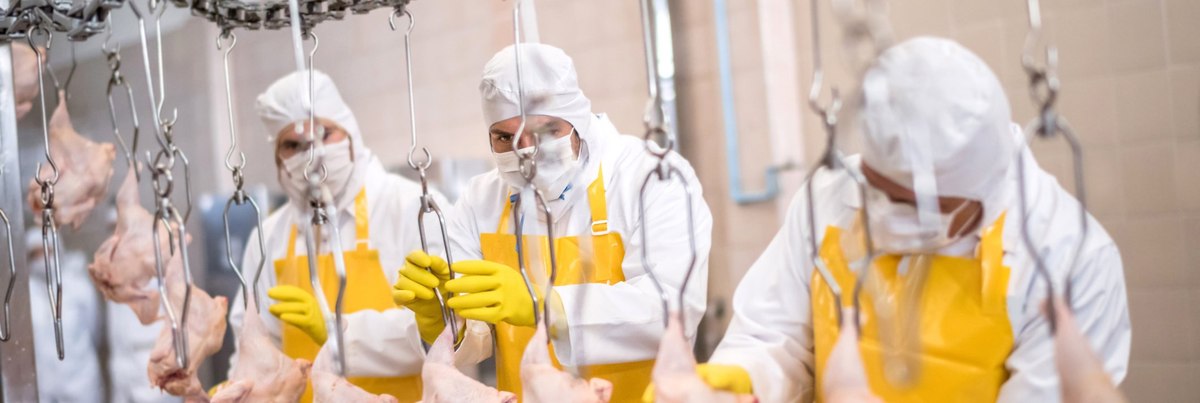Workers in meat processing facilities are falling ill due to COVID-19, and Americans are concerned about whether they’ll be able to buy the meat in the coming weeks.
Earlier this week, President Donald Trump signed an executive order meant to help prevent possible shortages of pork, chicken, and other meat products. The order invokes the Defense Production Act to classify meat plants as essential infrastructure.
Data from a recent YouGov poll of more than 8,000 Americans finds that 60 percent of US adults are concerned about a possible meat shortage in the United States.
Another 22 percent say they are not very concerned, while 12 percent are not concerned at all.
Some experts have noted that a meat shortage might mean that consumers will have fewer options, but there will still be some types of meat available for purchase.
“You might not get what you want when you want it,” Christine McCracken, a meat industry analyst at Rabobank in New York said in an interview with The New York Times. “Consumers like to have a lot of different choices, and the reality is in the short term, we just don’t have the labor to make that happen.”
The United Food and Commercial Workers International Union recently sent a letter to Mike Pence (who is leading the White House coronavirus response) asking him to prioritize safety actions for workers in meatpacking and food processing facilities. Based on the most recent UFCW internal estimates, 20 meatpacking and food processing workers have died. In addition, at least 5,000 meatpacking workers and 1,500 food processing workers have been directly impacted by the virus.
“As of today, over 25 percent of America’s entire pork slaughter capacity is now shutdown, as well as 10 percent of beef slaughter capacity,” the letter reads. “The loss of such production, which is a direct result of workers getting sick and exposed, will inevitably lead to food shortages across this nation.”
Take a short chat to share your experiences with COVID-19
Related:
- How many Americans can pay their rent or mortgage this month?
- Most Americans have not heard of Remdesivir, the experimental COVID-19 drug
- JetBlue now requires all passengers to wear face coverings and the idea flies well with Americans
Image: Getty








